This might come as a surprise to some but influencing appears to be on its way out, at least that’s what some experts believe. The $7.36 billion industry is growing at a CAGR (compound annual growth rate) of 32.5 percent but some argue that it has gotten too big and it is time to put things into reverse gear. This thought has given birth to the word deinfluencing, which has been trending for a while.
The hashtag #deinfluencing has racked up around 200 million videos on TikTok and has made its presence felt on other platforms as well. So, is the industry really dying?
We don’t think so. It is here to stay and get bigger. Yet, deinfluencing is making a mark.
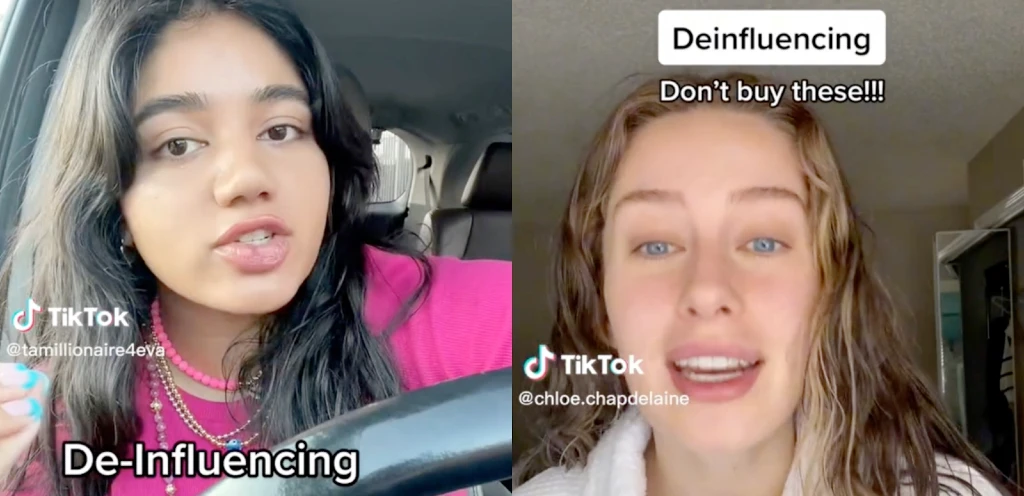
Let’s know more about this trend and how it can impact the industry.
Introduction to Deinfluencing
Deinfluencing, in simple words, is “the antithesis of influencing”.
Think about influencing and what it does. Used as a marketing tool, influencing includes hiring the services of influencers to promote a product or service with the intention to boost sales. Now think of its opposite: deinfluencing occurs when you encourage users to NOT buy a product or service.
Deinfluencing aims to help users understand the tactics brands use to “fool” consumers and get them to purchase more. Influencers do not want buyers to blindly follow trends. They are trying to curb overconsumption by highlighting products users do not need because they are:
- Too expensive
- Not worth the hype
- Less likely to be effective
But the twist is that while “depromoting” such products, they plug their recommendations that are usually more affordable and less popular.
They make a simple but valid point: not all popular products are good and not all cheap or unknown products are bad.
The trend has received mainstream attention and many popular names have jumped the bandwagon. While some are using it to promote products they truly believe in, others are making people realize that they often buy products that they do not need, resulting in a waste of money.
Why Is It Trending?
If you are a TikTok user, you must have seen deinfluencing videos. While some people choose to ignore them, some appear to be wondering why so many influencers are taking part in this movement and what’s causing it to trend.
Some people seem to be using the hashtag without knowing what it means simply because it can help them reach a wider audience.
So, why is it trending? To understand this trend, you will first have to understand influencer marketing and how it has become a rage. It’s said to be the “easy and affordable” way to market. Both small and big companies are utilizing influencer marketing to improve goodwill, sell more, and reach a higher number of people. However, a group of people believe that influencer marketing is overdone.
The problem with sponsored products is that they are everywhere and it can get hard to differentiate between real and paid posts. Everyone from Kim Kardashian to Dwayne Johnson is now associated with companies and making sponsored posts.
They are promoting all kinds of products, at times without even knowing how good or effective a product is. They’ll make a post about it for as long as they get paid. Since they enjoy a great influence, they can convince people to buy something resulting in addiction, overconsumption, and other such issues.
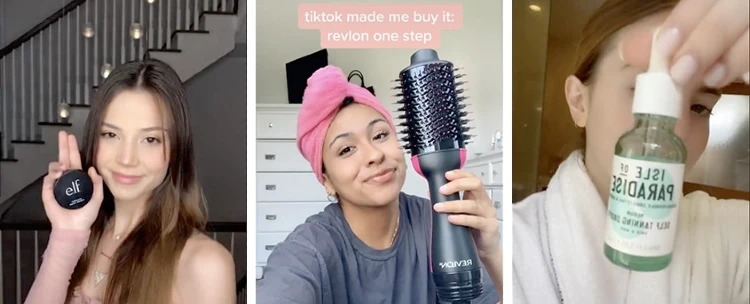
The Power of the Influencer
There are several hashtags related to the issue, including the #TikTokMadeMeBuyIt trend that involved people posting products they bought due to social media platforms. The trend highlighted how “influencers” were pushing people to buy things they didn’t need.
Even science has proven that celebs or influencers have the power to encourage people to make impulse purchases. They make videos showing products in a positive light forcing users to quickly make a purchase, often without a second thought.
Deinfluencing promises to tackle this issue and encourage people to live sustainably by making smart choices. Influencers use this term to tell people that they really “care” for them, which is one of the major reasons why the trend has caught up in such a big way. It makes people believe that the other person has their best interest in mind.
They tell consumers what to avoid by highlighting its side effects and mentioning better alternatives. This has proven to be effective in reducing impulse purchases and making people more conscious about what they buy.
Which Brands Are Suffering
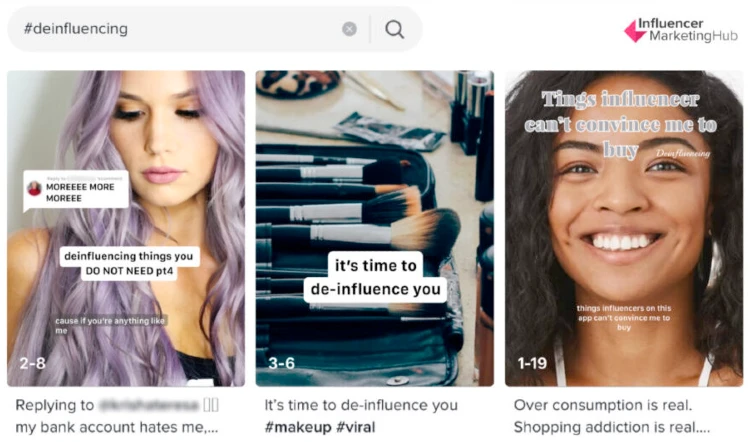
A great number of brands seem to be suffering the blow but some are more popular than others. Shien, for example, known for being loved by influencers, is also a controversial name due to shady practices. The fast fashion brand may be affordable but it’s also often in the news for pushing buyers to make more purchases through deceptive marketing and other such techniques.
The brand, however, is very popular among influencers due to its easy affiliate policies and friendly commission structures. On the plus side, consumers seem to love Shien as well. The company offers affordable items and releases 800 to 1,000 new products every day, which can even be purchased for a discount.
So, what’s wrong with Shien? The environmental impact. The brand, available in several countries, experiments with a few dozen pieces of each new item first to ensure it clicks with the buyers. With the company making hundreds of new things every day, it pushes the number to over 30,000 new units per day. Now, imagine how it impacts the environment.
Influencers believe that deinfluencing is necessary to highlight this and stop overconsumption. Moreover, some influencers are not only stopping buyers from purchasing the product but also trying to get Shien to change its practices.
Shien, however, isn’t the only brand facing these issues. Many in fashion and beauty niches are suffering as well.
What Creators and Brands Need to Do
As highlighted above, this new trend is impacting both businesses and creators. Influencers are already worried and brands need to pull up their socks too. So, how can creators and brands fight this trend and stay afloat?
Here are some tips:
Brands Need to Understand That Influencers Will Choose Their Followers First
What Brands Need to Do:
If you look at deinfluencing influencers, you will notice that their loyalty lies with their followers and not always with the brand they choose to work with. Influencers receive incentives in the form of free products and cash payments to plug specific products and while some may only say “positive” things in return, not all are willing to work with bad companies.
Some are very careful about the brand they get associated with. This is something brands need to understand. Influencers will “not” work with bad companies and if you want to continue to work with influencers, you will have to improve your products and services.
With deinfluencing becoming a reality, the balance is shifting from brands to consumers. Influencers have started to say “no” to brands they do not trust in. You need to build your image before approaching top names. In addition, brands need to be open to honest reviews.
Instead of paying influencers or users to remove genuine reviews or editing existing content, they should work on their shortcomings so that people have no reason to talk ill of them.
What Influencers Need to Do:
Influencers need to be “honest” and not work with companies they do not know or trust. The consensus is that money can buy most influencers and they will post anything for money.
If you want to continue to succeed then you will have to change this notion and be more careful about the kind of brands you work with. Stay away from “bad” companies and do not post fake reviews. Even if you enjoy a good reputation today, continuing to plug poor products will hamper your image and force your followers to move elsewhere – to a name they can trust.
Pay Attention to the Language
What Brands Need to Do:
Brands have to be very careful about the language they use as using the wrong words could get them boycotted or canceled. Cancel culture is getting more and more common and brands like L’Oréal Paris, Goodyear, and Goya have suffered greatly.
The best way to solve this problem is to have full creative control over the content that you publish. Influencers enjoy creativity and creating their content but it could backfire as they are not always careful about what to include in campaigns.
Brands need to pay attention to campaign language and highlight real selling points. For example, use words such as climate-certified, woman-oriented, not tested on animals, and made from recycled materials.
What Influencers Need to Do:
Big names like J.K. Rowling and Ellen DeGeneres have been under fire due to poorly chosen words.
People today are being held accountable for their actions. Users quickly judge influencers who push them to buy something unnecessary by using language such as “YOLO” or “Now or Never”.
Today’s generation pays attention to a lot of things, including climate change, sustainability, and excessive consumption. We’re shifting away from excessive consumption to conscious consumption. You need to include this in your content.
Join our 23,000 strong email list (growing fast!) to get access to exclusive content and more!
TELL ME MORE
Understand Your Target Audience
What Brands Need to Do:
Consumers are saying no to brands for a variety of reasons, including inauthenticity and high price tags. The trend is making people realize how they’re wasting money and why they need to stop doing it. This makes it necessary for brands to rethink their strategy and understand who they want to target.
With inflation, products are getting expensive, and purchasing power is decreasing. This means that people who could afford your products yesterday cannot afford them today. Hence, there is a need to work out your existing audience and ensure you only cater to people who are likely to purchase your product or service.
Everything from gender to location to age and interests needs to be revisited. For example, someone who pushes the “green” agenda may not be interested in products that are not sustainable.
What Influencers Need to Do:
Content creators need to be more creative and ensure that campaigns are interesting and well-aligned with the target audience’s income, values, priorities, and spending habits. Otherwise, they will be labeled “tone-deaf” or get canceled by the increasingly woke audience.
Many influencers, including some very big names, have faced these issues, including Dwayne Johnson, who suffered backlash due to some old videos where he was in character playing a gimmick. Some other names to have faced a similar situation include Rachel Hollis for comparing herself to Marie Curie and Harriet Tubman, and Shane Dawson for making pedophilia jokes and donning blackface.
Listen to What Industry Experts Have to Say
What Brands Need to Do:
If you look at deinfluencing posts, you will realize they don’t follow the same agenda. Some are focused on calling out lies, some are meant to stop mass consumerism, and some highlight a lack of transparency.
Some influencers, especially those in the health and fitness industry, feel that they must highlight misinformation and help people make the right call. They do this by posting reviews and detailed posts on social media and calling out brands that spread false information.
Brands can use this as an opportunity by working with experts known for highlighting “bad” companies. This can be a great way to add prestige to a brand’s name and make it look authentic by adding value-added commentary to campaigns.
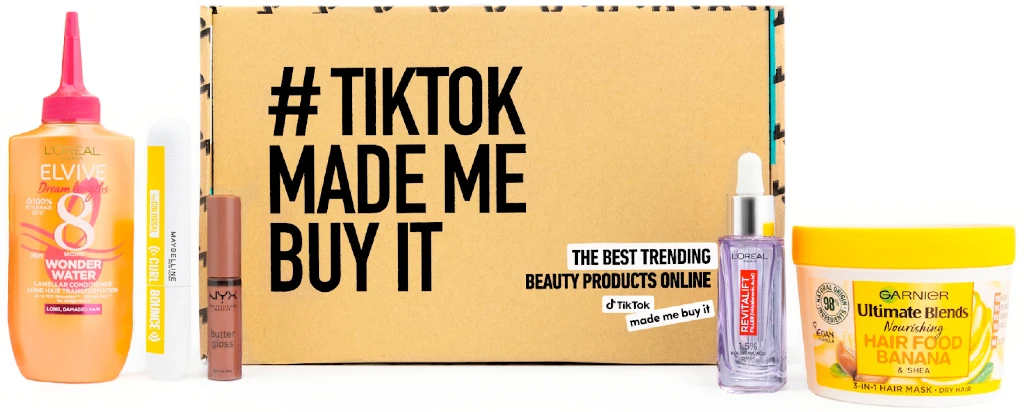
L’Oréal did a very good job of using the trend to push its agenda by pushing the #TikTokMadeMeBuyIt tag.
What Influencers Need to Do:
Influencers need to look for brands that people trust. Unfortunately, it may not always be possible for influencers to choose brands as only big names enjoy this luxury. Most influencers, especially new and upcoming influencers, work with all kinds of brands and only look at the perks offered. This, however, is a big mistake as working with brands that do not follow the right agenda can backfire and cause you to lose followers.
Balenciaga, for example, suffered lately due to the use of child models in its campaigns. Influencers that partnered with the giant faced issues as a result due to calls to ban such influencers and many even made calls to destroy Balenciaga products. For your interest, it is best that you keep an eye on what other influencers have to say about a brand before starting any sort of partnership.
Carefully Vet Your Brands and Influencers
What Brands Need to Do:
Brands need to be careful about the influencers they work with. It is common for brands to only look at the number of followers an influencer has; however, it is no more the most important metric. You need to look at other factors too, including who follows them, what their agenda is, and what kind of brands they work with.
Do not approach influencers who are not positive about your brand or niche. For example, some influencers are against cannabis. Brands that sell cannabis-related products should not approach such influencers as it may backfire.
What Influencers Need to Do:
Influencers need to be careful as well. Don’t get too excited when you get approached by a brand. Take your time to study the brand and what they bring to the table. Don’t let big figures fool you and don’t go by a simple Google search.
You need to have a critical look at the products and services they offer and what others think of them. Remember that a single misaligned campaign can cause your followers to lose trust in you.
It might be a good idea to stay away from controversial brands and work with platforms like Afluencer so you can have a look at details such as past campaigns and influencers a brand has been associated with.
Follow FTC Guidelines and Regulations
What Brands Need to Do:
The Federal Trade Commission (FTC) has set regulations that define some rules brands have to follow when working with influencers to promote products or services.
Not following these guidelines can result in issues such as your campaign getting taken down. Both parties must ensure FTC guidelines are met. As a brand, you must make sure the influencer you work with follows all guidelines.
Social media compliance does not only help avoid legal issues but can also reduce the risk of deinfluencing commentary against you.
What Influencers Need to Do:
FTC has published rules concerning influencer marketing to help users identify “material connections” to brands they are endorsing. Influencers must publish a disclosure when working with brands to recommend or endorse products.
Here is what the document says:
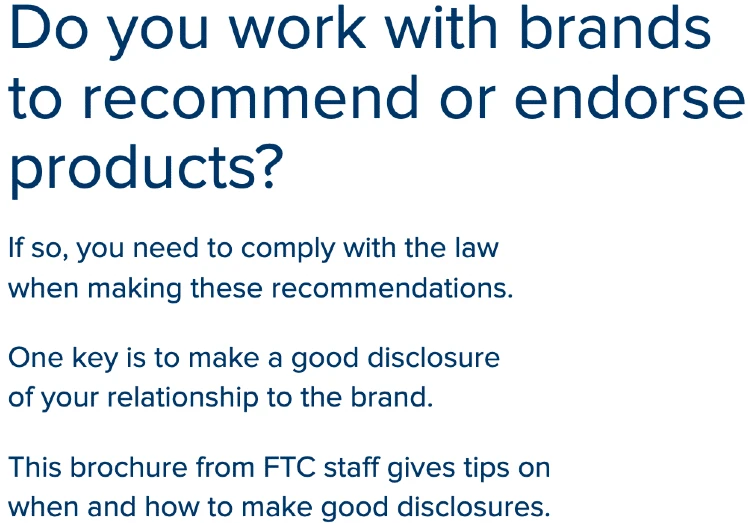
In simple words, influencers must make full disclosure when receiving any form of incentive, including discounted products or services, monetary rewards, or free products in exchange for promotional content such as reviews.
Why Your Brand Needs to Understand Deinfluencing
Now that we have explained deinfluencing, we need to now talk about how it ties into your marketing strategy. As evident from the discussion above, the trend impacts brands more than it impacts influencers.
Here’s why you must spend some time understanding the trend:
You Need A New Tactic
Consumers today don’t blindly follow fashion. They are becoming conscious and are thinking twice before making a buying decision. Their bank account isn’t the only thing they look at, they also care for the environment and like to support sustainable brands.
It is believed that about 90 percent of Gen X are willing to pay up to 10 percent more for sustainable goods. This is a huge increase from only 34 percent of buyers willing to pay more for sustainable goods two years ago.
This is a great opportunity for brands. You can rebrand your products and highlight how it helps the environment. Many brands, including Coca-Cola and Microsoft, are now pushing for a sustainable future and helping the environment.
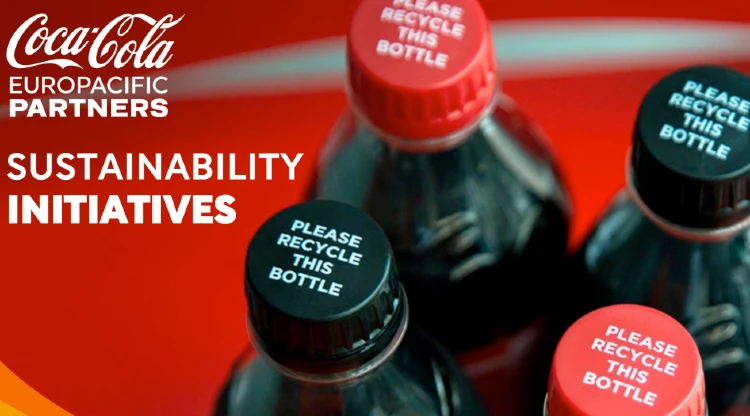
The push for sustainable brands is very strong in developed countries, including the US where 78 percent of consumers want a sustainable lifestyle. The number is also very high in European countries, making it necessary for international brands to be careful.
We have seen a huge increase in products that support the environment. Some have even managed to outsell competitors despite the larger price tag. Products that claim to be environmentally good recorded 8 percent more growth than products that do not make such claims.
These figures prove the importance of being sustainable and the need to make changes. New buying habits are gradually developing and deinfluencing can be credited for bringing this change.
Customers are looking for influencers with a similar agenda. They look for inspiration and instead of loud and over-the-top brands, they are more interested in brands that offer sustainable products and services.
Older Campaigns and Collaborations May Not Work Anymore
It doesn’t matter how long your relationship with an influencer is, now might be the right time to shift gears and look for influencers people can trust. Regular influencers, including celebs such as Ellen Degeneres, have lost the pull. Experts believe that promotion exhaustion is the reason why users are turning away from popular names and looking for inspiration elsewhere.
People are smarter than ever. They can catch liars and will not think twice before blacklisting influencers or brands that lie. A great example of this can be a 2022 case where eight influencers had to face a lawsuit due to lying about stocks.
Another big name, Mikayla Nogueira, was also recently in the news due to a false advertisement. The diva was caught wearing false lashes to promote L’Oréal Paris Telescopic Mascara.
These incidents have proven that influencers don’t truly care for their followers, they’re only interested in making money. As a result, consumers have started to “unfollow” unauthentic influencers pushing brands to look for inspiration elsewhere, including deinfluencing creators.
They are known for being authentic, reliable, and honest. As a brand, you should consider working with such influencers as they can offer you a better ROI. However, it can be hard to get such influencers to partner with your brand as they are very careful about who they get associated with. It might be a good idea to look for deinfluencing creators who already use your brand and have faith in it.
All in all, brands need to change existing marketing efforts and utilize the deinfluencing trend. At Afluencer, we have several deinfluencing creators with huge followings. They are looking for authentic and good brands to work with. Moreover, we house several sustainable brands that are looking for suitable influencers.
Join us today to get access to them.